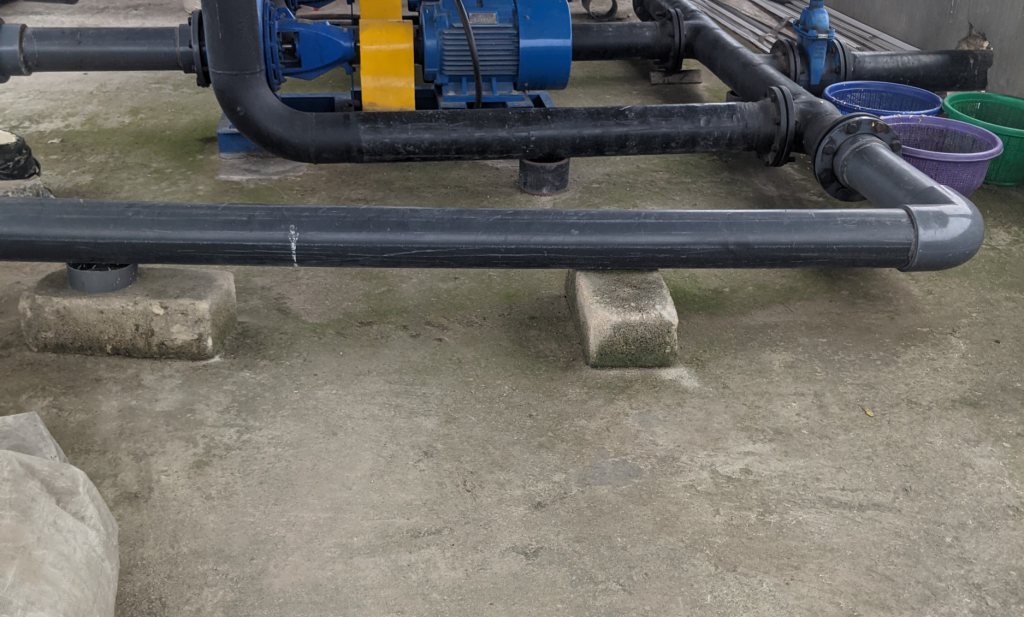In this week's Letter to My Farmer, Babatunde outlines the three main risks present as obstacles to productivity in agriculture.
In my last letter, I highlighted the effect of risks in the agricultural value chain and proposed viable solutions. However, in this week's letter, I have identified some major risks that affect agricultural production and have been highlighted in subsequent paragraphs.
Production risks are risks identified with production activities (pre - planting and post planting operation activities), such as rainfall pattern, pest and diseases, germination rate amongst others which can be either managed or transferred. Risk transfer can be done by buying insurance policies aimed towards the specified risks and ensuring a safety net.
Also, there is financial risk. Agriculture requires deliberate planning throughout its activities, and some levels of financial commitment. This is a situation in which producers are faced with the possibility of losing their investment or inability to repay its debt due to external or internal factors. It could also be the inability of the actors to be able to continue the funding of his or her business due to paucity of funds or inability to access required finance as a result of barriers or bottlenecks. Therefore, this could totally ground one's business and affect the development of the value chain.
Furthermore, price risk. Price risk comes when there is a drastic or unexpected change in the price of inputs and product, leading to reduction in revenue. Price risk can happen as a result of poor government policies, high inflation (as we have now in Nigeria), and global economic meltdown amongst others. When prices are adversely affected, it would reduce the profitability of the business, and its impact could be grievous on the business. It increases cost of production also and could result in high financial risk.
Lastly, market risk. When producers are unable to sell their final product due to their inability to find reliable markets within their environment or inability of the market to absorb the volume of products being produced. For perishable products, this risk increases post harvest losses and could be a huge setback for the actors. Many stakeholders have proposed the adoption of off takers' agreements before commencement of production activities, however, the issue of price risk could cause a big blow and inability of offtakers to honor agreement.
These risks are major obstacles to the scaling of food production at the farm level as they are mainly borne by the producers. It is important that proper sensitisation should be done for identified value chain actors and also incorporation of periodic risk assessment should be encouraged; having feasible mitigants that can be adopted and properly managed risks. This is a common belief that food security is hinged on the actualization of properly managed risks (low risks) especially in the production of food. Therefore, the various stakeholders must be consciously involved to ensure that these obstacles are tackled head on, de-risking agriculture, in order to achieve food sustainability and zero hunger.
Yours-in-Service,
Babatunde
Production risks are risks identified with production activities (pre - planting and post planting operation activities), such as rainfall pattern, pest and diseases, germination rate amongst others which can be either managed or transferred. Risk transfer can be done by buying insurance policies aimed towards the specified risks and ensuring a safety net.
Also, there is financial risk. Agriculture requires deliberate planning throughout its activities, and some levels of financial commitment. This is a situation in which producers are faced with the possibility of losing their investment or inability to repay its debt due to external or internal factors. It could also be the inability of the actors to be able to continue the funding of his or her business due to paucity of funds or inability to access required finance as a result of barriers or bottlenecks. Therefore, this could totally ground one's business and affect the development of the value chain.
Furthermore, price risk. Price risk comes when there is a drastic or unexpected change in the price of inputs and product, leading to reduction in revenue. Price risk can happen as a result of poor government policies, high inflation (as we have now in Nigeria), and global economic meltdown amongst others. When prices are adversely affected, it would reduce the profitability of the business, and its impact could be grievous on the business. It increases cost of production also and could result in high financial risk.
Lastly, market risk. When producers are unable to sell their final product due to their inability to find reliable markets within their environment or inability of the market to absorb the volume of products being produced. For perishable products, this risk increases post harvest losses and could be a huge setback for the actors. Many stakeholders have proposed the adoption of off takers' agreements before commencement of production activities, however, the issue of price risk could cause a big blow and inability of offtakers to honor agreement.
These risks are major obstacles to the scaling of food production at the farm level as they are mainly borne by the producers. It is important that proper sensitisation should be done for identified value chain actors and also incorporation of periodic risk assessment should be encouraged; having feasible mitigants that can be adopted and properly managed risks. This is a common belief that food security is hinged on the actualization of properly managed risks (low risks) especially in the production of food. Therefore, the various stakeholders must be consciously involved to ensure that these obstacles are tackled head on, de-risking agriculture, in order to achieve food sustainability and zero hunger.
Yours-in-Service,
Babatunde
Related



